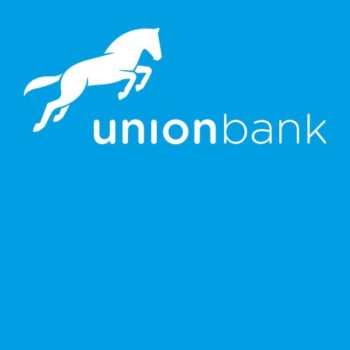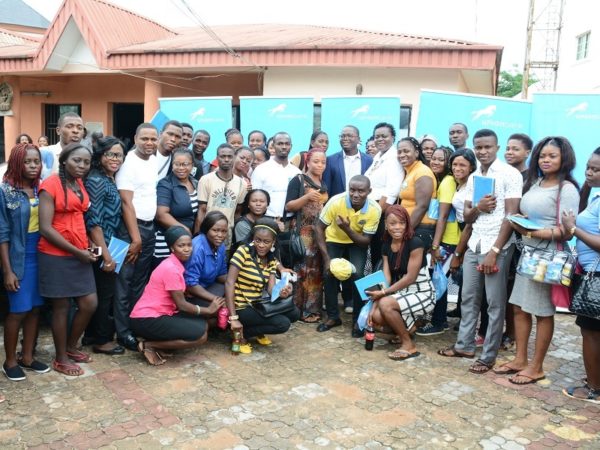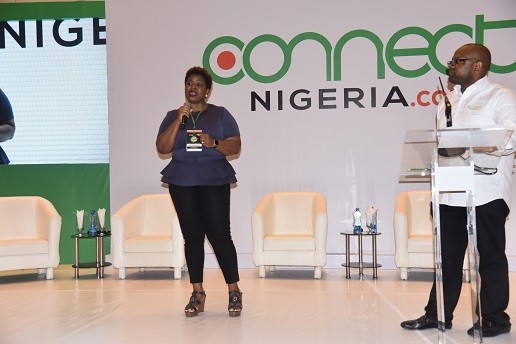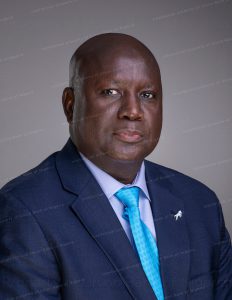
Lagos, Nigeria, February 27, 2020— IFC, a member of the World Bank Group, today announced a $25 million local-currency investment in a risk-sharing facility to expand Union Bank’s lending to small and medium enterprises (SMEs) in Nigeria. The facility, which will cover as much as 50 percent of the risk of the bank’s loans to entrepreneurs, aims to help Nigerian businesses grow and create jobs.
With IFC’s support, Union Bank plans to offer more products and services to women-owned businesses, especially in Nigeria’s conflict-affected Northern and Delta regions, where entrepreneurs face particularly difficult challenges accessing finance, and more than half the population is excluded from the financial system.
According to the Chief Executive of Union Bank, Emeka Emuwa:
“Union Bank continues to develop sustainable products and services that promote enterprise and address poverty and financial inclusion. This is in line with our commitment to support the communities within which we operate. The IFC facility is a welcome development which will further deepen our efforts to support Nigerian SMEs and women.”
Also commenting on the initiative, Eme Essien Lore, IFC’s Country Manager for Nigeria said;
“IFC’s risk-sharing facility will help Union Bank increase its focus on Nigeria’s underserved areas, positioning it as one of the leading banks that provides customized services to SMEs that are driving job creation and growth across the country.”
Although small businesses provide over 80 percent of Nigeria’s jobs, a recent World Bank survey found thatnly 15 percent of SMEs in the country reported having a bank loan or line of credit. It also found that more than half of the women-managed firms surveyed named access to finance as a major obstacle to growth.
The new facility is part of IFC’s Small Loan Guarantee Program (SLGP), which is easing local-currency lending to SMEs in frontier markets. SLGP is backed by the International Development Association’s (IDA) Private Sector Window, which is providing a first-loss guarantee, allowing IFC to scale up its support to underserved and unbanked SMEs.
IFC’s investment also includes support from the Women Entrepreneurs Finance Initiative (We-Fi), in the form of performance-based incentives for increased lending to women-owned SMEs.
Union Bank has continued to support SME and empower women-led businesses through tailored products and services. The Bank recently unveiled Alpher (α), a dynamic proposition aimed at uplifting Nigerian women through customised financial services, capacity building opportunities and competitive interest rates on loans.
In 2017, the Bank also introduced an innovative business acceleration programme, ‘Start up Connect’ which enables Nigerian businesses creating technology-based solutions to be more competitive in the rapidly expanding African technology market.
The partnership with Union Bank underscores IFC’s growing commitment to Nigeria. IFC has invested in several projects in heavy manufacturing, technology and financial services amongst other key sectors in the country. Nigeria has been one of IFC’s fastest growing country portfolios, making it one of the organization’s top ten country exposures.
About IFC
IFC—a sister organization of the World Bank and member of the World Bank Group—is the largest global development institution focused on the private sector in emerging markets. We work with more than 2,000 businesses worldwide, using our capital, expertise, and influence to create markets and opportunities in the toughest areas of the world. In fiscal year 2018, we delivered more than $23 billion in long-term financing for developing countries, leveraging the power of the private sector to end extreme poverty and boost shared prosperity. For more information, visit www.ifc.org
About Union Bank Plc.
Established in 1917 and listed on the Nigerian Stock Exchange in 1971, Union Bank of Nigeria Plc. is a household name and one of Nigeria’s long-standing and most respected financial institutions. The Bank is a trusted and recognizable brand, with an extensive network of over 300 branches across Nigeria.
In late 2012, a new Board of Directors and Executive Management team were appointed to Union Bank and in 2014 the Bank began executing a transformation programme to re-establish it as a highly respected provider of quality financial services.
The Bank currently offers a variety of banking services to both individual and corporate clients including current, savings and deposit account services, funds transfer, foreign currency domiciliation, loans, overdrafts, equipment leasing and trade finance. The Bank also offers its customers convenient electronic banking channels and products including Online Banking, Mobile Banking, Debit Cards, ATMs and POS Systems. For more information, visit www.unionbankng.com
About the IDA Private Sector Window
As part of the record $75 billion IDA18 replenishment, the World Bank Group created the $2.5 billion IDA Private Sector Window to catalyze private sector investment in the poorest and most fragile countries. Recognizing the key role of the private sector in achieving IDA18 objectives and the Sustainable Development Goals, the window provides concessional funds for co-investment alongside IFC and Multilateral Investment Guarantee Agency (MIGA) private investments. Concessional funds help to mitigate risk and reduce barriers, which unlocks and crowds in private investment in emerging markets. For more information, visit: http://ida.worldbank.org/psw
About We-Fi
The Women Entrepreneurs Finance Initiative (We-Fi) is a collaborative partnership among fourteen governments and eight multilateral development banks. Housed in the World Bank Group, We-Fi seeks to unlock billions of dollars in financing to tackle the full range of barriers facing women entrepreneurs—increasing access to finance, markets, technology, and mentoring, while strengthening policy, and legal and regulatory frameworks. As one of the We-Fi implementing partners, IFC supports private sector clients with investments and advisory services to expand financial services and market access for women-owned/led firms, as well as increasing the capacity of women entrepreneurs to run high-growth businesses. For more information, visit www.we-fi.org.












